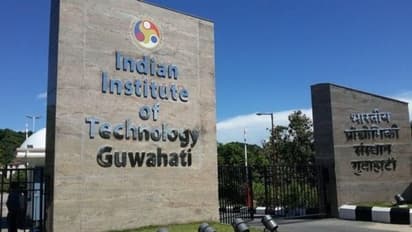IIT-Guwahati scientists develop chemo strategy that reduces side effects for cancer patients

Synopsis
According to the report, cancer deaths are thought to be caused by chemotherapy side effects as by the disease itself. "Worldwide research is being conducted to overcome the disadvantages of chemotherapeutic drugs' secondary toxicity. Target-specific drug delivery and on-demand delivery of appropriate drug doses to cancerous cells and tissues are among the strategies being investigated," according to the statement.
Researchers at IIT-Guwahati have developed a new strategy for delivering chemotherapeutic drugs directly to a cancer patient's infected cells, significantly reducing side effects.
Professor Debasis Manna of the Department of Chemistry explained that the researchers had two requirements in the development of chemotherapy drugs, they had to be targeted at cancer cells, and they had to be released by an external trigger whenever it was needed.
"The problem with existing chemotherapeutic drugs is that they kill healthy cells as well as cancerous cells, resulting in a slew of undesirable side effects," IIT-Guwahati said in a statement on Monday.
According to the report, cancer deaths are thought to be caused as much by chemotherapy side effects as by the disease itself.
"Worldwide research is being conducted to overcome the disadvantages of secondary toxicity of chemotherapeutic drugs. Some of the strategies being investigated include target-specific drug delivery and on-demand delivery of appropriate drug doses to cancerous cells and tissues," it stated.
According to the statement, the molecules developed by the IIT-Guwahati researchers self-assemble as capsules to hold the drug, which then attaches only to cancer cells.
"The shell breaks when exposed to infrared light, releasing the encapsulated medicine into the cancerous cell. The IIT-G scientists are correct in believing that their approach will enable the development of drug carriers for chemotherapy with increased efficacy and minimal side effects," it was added.
Manna co-authored the research papers with his research scholars Subhasis Dey, Anjali Patel, and Biswa Mohan Prusty, among others.
Anti-cancer activities were carried out in collaboration with IIT-Guwahati professors Siddhartha Sankar Ghosh and Plaboni Sen, as well as Calcutta University professors Arindam Bhattacharyya and Soumya Chatterjee.
"The findings of this study have been published in prestigious journals of The Royal Society of Chemistry, including 'Chemical Communications' and 'Organic and Biomolecular Chemistry," according to the statement.
According to the premier technical institute, the societal implications of this work cannot be overstated, given that the number of cancer patients in India is expected to reach 30 million by 2025.
(With inputs from PTI)
Also Read: AIIMS doctor fired for taking money for surgery; Center seeks report
Also Read: IIT Bombay canteen worker record female students in hostel washroom, arrested
Also Read: IIT-Bombay students threaten to go on hunger strike from August 6 over fee hike
Stay updated with the Breaking News Today and Latest News from across India and around the world. Get real-time updates, in-depth analysis, and comprehensive coverage of India News, World News, Indian Defence News, Kerala News, and Karnataka News. From politics to current affairs, follow every major story as it unfolds. Get real-time updates from IMD on major cities weather forecasts, including Rain alerts, Cyclone warnings, and temperature trends. Download the Asianet News Official App from the Android Play Store and iPhone App Store for accurate and timely news updates anytime, anywhere.